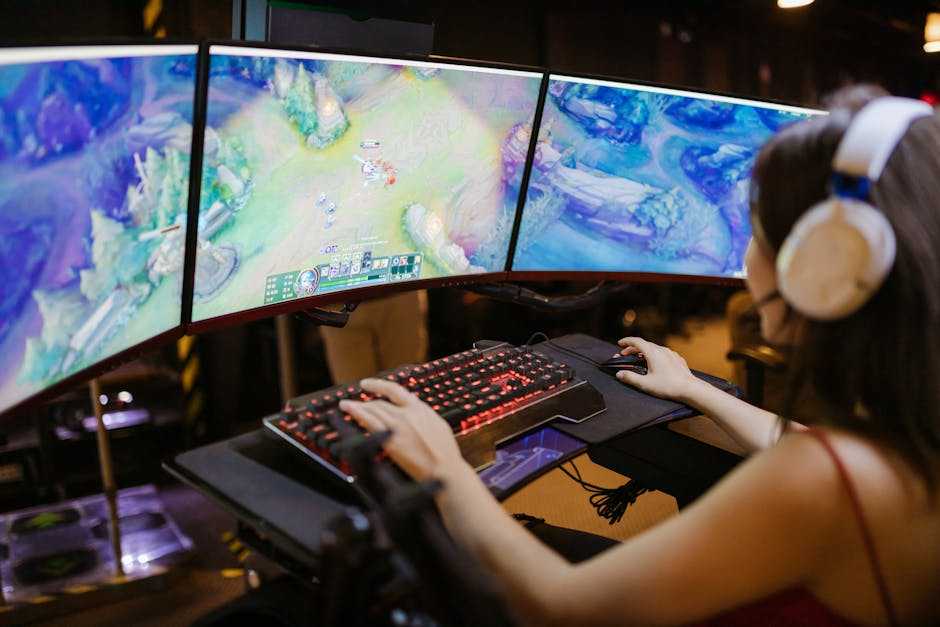From Hobby to Legitimate Varsity Sport
Esports didn’t crash the campus gates overnight it grew in the shadows first. Dorm rooms and computer labs became makeshift battlegrounds where students built communities around League of Legends, CS:GO, and Overwatch. It started small: Discord servers, weekend tournaments, custom built PCs running on campus Wi Fi. But interest snowballed. And universities paid attention.
Now, gaming isn’t just tolerated it’s organized. Varsity level esports teams are popping up across the country, backed by athletic departments, recruiting budgets, and practice schedules. The shift from hobby to headline sport has been driven in large part by student initiative. Early esports clubs did the groundwork organizing events, streaming matches, dealing with skeptical administrators. Those grassroots movements built the case for school funded teams.
What changed? Mostly: scale, structure, and recognition. Competitive formats leveled up fast thanks to initiatives like TESPA and NACE, which gave schools a clearer path to legitimacy. And as the numbers rolled in massive Twitch viewership, packed arenas, career opportunities institutions stopped asking if esports belonged and started figuring out how to capitalize.
On campus culture isn’t just shifting it’s adapting. Gamers aren’t outsiders anymore. They’re athletes with jerseys, schedules, and support staff. And as more colleges put real resources behind their programs, the message is clear: esports isn’t a sideshow. It’s part of the main event.
Scholarships and Academic Tracks
Colleges aren’t just jumping on the esports bandwagon they’re investing hard into it. Right now, more than 200 U.S. schools offer some form of esports scholarship, with fresh programs popping up every semester. Places like University of California Irvine, Boise State, and Harrisburg University have built strong reputations around competitive gaming. Some offer full rides, others mix partial aid into general athletic or academic packages. Either way, the message is clear: if you’re a skilled gamer, there’s real support on the table.
But it’s not only about gaming skill. Schools are pairing esports with majors that plug directly into the industry. Game design. Broadcasting. Marketing. Event management. These aren’t fringe electives anymore they’re core tracks with real career paths. In fact, students in these programs often get hands on experience through campus esports events, helping them build legit portfolios before graduation.
The upside for institutions? Recruitment goes up. So does student engagement and retention. Esports also gives colleges a modern edge something to market on TikTok and put in viewbooks. For schools aiming to stay relevant, building an esports program has become less of a novelty and more of a long play for branding and connection.
Infrastructure and Investment at the Campus Level

Esports is no longer just kids gathering in dorms with a few cables and a dream. Universities are building out dedicated esports arenas fully equipped with pro grade PCs, streaming setups, seating for fans, and branding that rivals traditional athletic departments. These are high spec battlegrounds designed for serious training and real competition.
Alongside the gear, schools are bringing in full support staffs. Think coaches analyzing scrims, performance analysts breaking down gameplay, and even health professionals focused on the physical and mental toll of competitive gaming. Recovery and reflex training are starting to look a lot like what you’d expect from a football or basketball program, and that’s exactly the point. Colleges are investing in esports with the same seriousness they’ve shown traditional athletics for decades.
The payoff? More schools are entering national esports leagues, and the level of gameplay is only getting sharper. Whether it’s a Big Ten school or a small private university, teams are flying out for regional qualifiers and national finals. And with scouts from pro orgs paying attention, these matches aren’t just bragging rights they’re auditions.
Inclusion, Representation, and Accessibility
For years, collegiate esports mirrored the wider gaming world dominated by a narrow group, with far too many voices missing. That’s starting to change. Schools are making intentional moves to close the gap. Diversity isn’t just a bullet point anymore; it’s being baked into how programs are designed, promoted, and staffed.
Women and students from underrepresented backgrounds are carving out space, not just as players, but as leaders: team captains, strategists, casters. Some universities have launched exclusive initiatives or partnerships focused on gender equity or support for BIPOC students. It’s not perfect, but there’s movement.
At the infrastructure level, more programs are being built to be inclusive from the first keystroke. That includes co ed team mandates, mentorship circles, and explicit codes of conduct to keep toxicity in check. It’s a shift away from gatekeeping and toward actual accessibility.
It’s not performative it’s practical. Diverse teams perform better. Inclusive communities retain students. And as esports continues to professionalize, these values aren’t just feel good territory they’re competitive advantages.
(Explore more on inclusion in esports)
Career Paths From Collegiate Esports
College esports isn’t just about bragging rights anymore it’s a launchpad for real careers. Top university teams are now legitimate feeders into the pro scene. Scouting has picked up, with coaches from major organizations checking out collegiate tournaments. Standout players are getting signed straight from campus. Just like basketball or football, performance at the college level can open doors to the big leagues.
But it doesn’t stop with gameplay. There’s a whole ecosystem growing behind the scenes. Students are getting real experience in event production, coaching, content creation, marketing, sponsorship negotiation you name it. Universities are treating esports like any other high investment program, and that brings opportunity.
Internships and partnerships are helping connect students with major orgs in the space. Think Riot Games, ESL, or smaller regional outfits looking for rising talent. Whether you’re aiming to compete, manage, or create, the collegiate path is no longer fringe it’s a strategic foothold in a booming industry.
What Comes Next
Esports isn’t just a side gig on campus anymore it’s being woven directly into the academic fabric. More universities are introducing esports related coursework, from game theory to business management, with programs designed to channel student passion into real world career skills. Whether it’s digital media classes using actual competition footage or sports psychology modules focused on team cohesion, the curriculum is catching up to the culture.
National collegiate leagues are also seeing new momentum. Organized structures like NACE and CCA are giving students competitive platforms with visibility, rules, and real stakes. That national scaffolding makes the path from school tournaments to larger stages more defined and more appealing for both players and schools.
Diversity continues to be a cornerstone of this growth. Institutions are under pressure to ensure these programs are open, representative, and set up for long term inclusivity. There’s still work to do, but early indicators show a push to build esports with academic integrity and community equity baked in.
Discover more about inclusion in esports


 Rosendor Smithiery, the founder of Infinity Game Saga, plays a pivotal role in shaping the direction and content of the platform. As the visionary behind the site, Rosendor’s leadership and passion for gaming drive the company’s mission to deliver top-notch gaming coverage. In addition to his executive role, he actively contributes to writing articles, offering his deep insights and expert perspectives on various gaming topics.
Rosendor’s hands-on approach ensures that Infinity Game Saga maintains a high standard of quality and relevance. His articles often explore emerging trends, provide detailed analyses, and offer unique viewpoints on the gaming industry. By blending his leadership with his writing, Rosendor enriches the content and connects with readers, solidifying Infinity Game Saga’s reputation as a leading voice in gaming media.
Rosendor Smithiery, the founder of Infinity Game Saga, plays a pivotal role in shaping the direction and content of the platform. As the visionary behind the site, Rosendor’s leadership and passion for gaming drive the company’s mission to deliver top-notch gaming coverage. In addition to his executive role, he actively contributes to writing articles, offering his deep insights and expert perspectives on various gaming topics.
Rosendor’s hands-on approach ensures that Infinity Game Saga maintains a high standard of quality and relevance. His articles often explore emerging trends, provide detailed analyses, and offer unique viewpoints on the gaming industry. By blending his leadership with his writing, Rosendor enriches the content and connects with readers, solidifying Infinity Game Saga’s reputation as a leading voice in gaming media.
